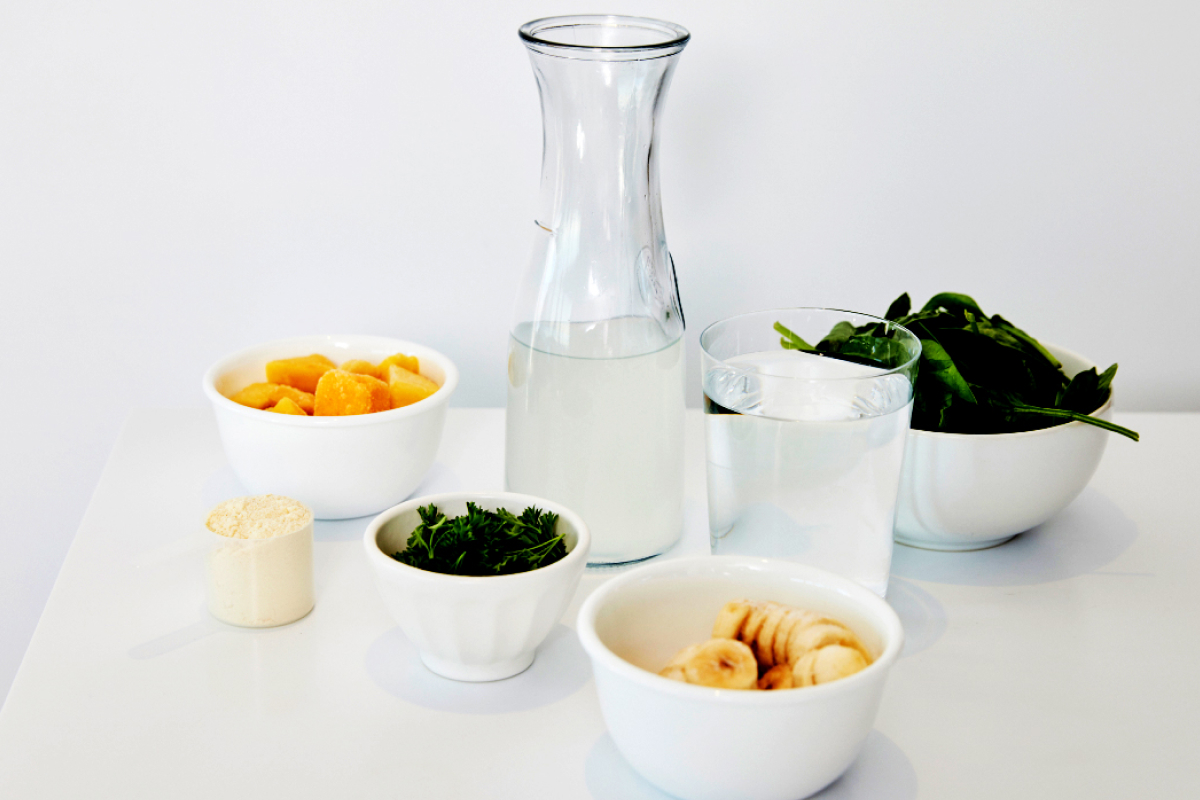These essential minerals are lost through sweat and play a major role in keeping you hydrated.

Finishing a workout covered in sweat might leave you feeling proud and accomplished—and possibly a little dehydrated, too.
When you exercise intensely, especially in high heat or humidity, you may be at risk of fluid loss that exceeds your fluid intake. Besides making you feel lousy, this type of dehydration can impair your physical and cognitive performance. Reaching for your water bottle will help, but sweat is made up of more than just water, so you also need to replenish your electrolytes.
Here’s a primer on why you need electrolytes and how to replenish them after a sweaty session.
What Are Electrolytes?
Electrolytes are minerals—such as sodium, potassium, magnesium, and calcium—that carry electrical charges. These electrical charges allow your muscles to contract and facilitate chemical reactions within your cells that are required for fluid balance and energy metabolism. When you sweat, your body loses some of these essential minerals.

Why Are Electrolytes Important?
Sodium and potassium work together to maintain a healthy balance of fluid within your cells, explains Amy Shapiro, a registered dietitian and nutritionist. If you hydrate with just water and don’t replace electrolytes lost through sweat during intense exercise, you run the risk of throwing off this delicate balance, causing cells to swell with excess water. In extreme cases, such as endurance athletes who sweat heavily and don’t take in enough sodium, this may cause a dangerous condition called hyponatremia.
While these minerals are necessary for staying hydrated, that’s not their only job.
“Electrolytes are also involved in other body functions such as how the brain sends signals through our nerves and aiding in muscle contractions,” says Stephanie Hnatiuk, a registered dietitian and fitness coach. “These muscle contractions include not only our skeletal muscles but also the cardiac muscle that keeps our heart beating properly.” Therefore, severe electrolyte imbalances can cause heart rate irregularities.
How Many Electrolytes Should You Consume?
For healthy adults, the Recommended Dietary Allowances (RDA) of electrolytes are 4,700 milligrams (mg) of potassium, 1,000 mg of calcium (or 1,200 mg for adults over 50), and a maximum of 2,300 mg of sodium. Women and men should aim for 310 to 320 or 400 to 420 mg of magnesium, respectfully, with both targeting the higher end of those ranges after age 30.
Most people consume these amounts simply by following a balanced diet. Electrolyte imbalance becomes a problem when you’re excessively losing fluids. That’s why it’s a concern if you’re suffering from fever, vomiting, or diarrhea — or if you’re sweating extensively during exercise.
Do You Need To Replace Electrolytes?
The exact levels of electrolytes in your body can only be measured in a blood, sweat, or urine test, but symptoms such as excessive thirst, muscle cramping, headaches, fatigue, and dark urine or decreased urine output might suggest you need to take in more of these key minerals.
If you regularly end your workouts with a coating of salt on your skin, you’re likely a “salty sweater,” who loses a significant amount of sodium through sweat and probably needs to take in additional sodium during or after exercise. “You might notice a white or grainy feeling buildup on your skin, hat, or clothing,” says Hnatiuk. “This is the salt you’ve lost via your sweat. If you do not see this even after long runs, you are a less ‘salty sweater.’”
Whichever end of the salty sweater continuum you fall on, Shapiro and Hnatiuk say you’ll lose more electrolytes in workouts that are high-intensity, longer than an hour, or performed in hot and humid conditions.
How Do You Replace Electrolytes?
When you’re looking to replace electrolytes after exercise, Hnatiuk says to focus on sodium, as it’s the primary electrolyte lost in sweat. She explains that we lose potassium, calcium, and magnesium when we sweat, too, but in much smaller amounts.
Outside of your workouts, eating a balanced diet will ensure you maintain a healthy store of electrolytes. Most people get more than enough sodium through food. If you follow a low-carb diet or strictly limit processed food, you might want to track your sodium input just to make sure you’re consuming enough, especially if you’re also very active. The following foods are especially good sources of additional electrolytes:
Potassium: Bananas, avocado, potatoes, cooked spinach, cantaloupe, and oranges
Calcium: Milk, yogurt, cheese, soy, and dark, leafy greens
Magnesium: Dark chocolate, avocado, nuts, lentils, beans, and seeds
To quickly replenish your electrolytes, Shapiro recommends tablets and powders that dissolve in water. Saltier sweaters might prefer a formula with more sodium. Her favorite brands—listed in order of lowest to highest sodium content—are Ultima, Nuun, Liquid IV, and LMNT. Skratch Labs is another good choice you might consider.

There are many other popular sports drinks out there, but Shapiro prefers the brands above because they don’t contain artificial sweeteners, flavors, or colors. “If you’re exercising and you’re sweating, you want to reintroduce clean ingredients into your body because you’re doing something healthy for yourself,” she says.
Try drinking an electrolyte beverage after exercise or during your workout if you know you’ll be pushing at a high intensity for over an hour or in hot weather. If you prefer an all-natural alternative, Shapiro says coconut water and watermelon water are also rich in electrolytes.
Experiment with electrolyte supplements after your workouts (or during sustained efforts like marathon-training long runs) and pay attention to how you feel to determine what works best for you. Once you find a flavor and formula that works for you, stick with it. By keeping your electrolytes in balance, you’ll prevent dehydration and be able to perform at your best.
The information provided in this article is for educational and informational purposes only. Individuals with pre-existing health conditions, injuries, or concerns should consult with their healthcare provider before trying a new exercise or nutrition regimen.


